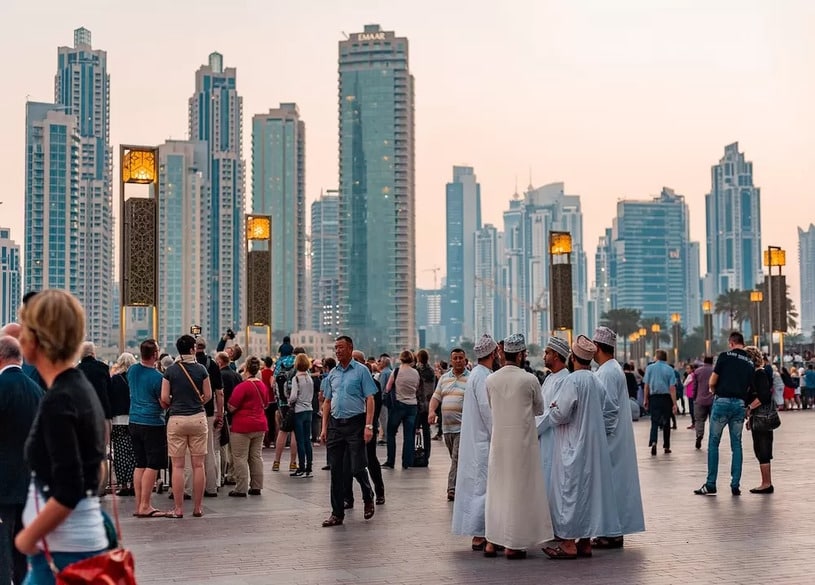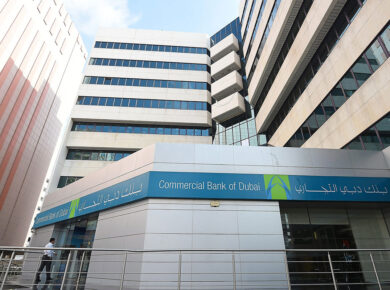Dubai’s Population Boom: Rising Living Costs vs. Stagnant Salaries – A Balancing Act for Expats and Businesses
Dubai’s reputation as a global business hub and a magnet for expatriates continues to strengthen. The city’s population surged past 3.65 million in 2024, a sharp rise driven by economic expansion, relaxed visa policies, and increasing global interest in the UAE’s tax-friendly environment. Yet, this rapid growth has sparked a critical issue: while demand for housing and services is pushing living costs higher, salaries remain relatively stagnant, leaving many residents questioning the financial sustainability of life in the emirate.
A City on the Rise
Dubai’s attractiveness is no secret. From its world-class infrastructure to business-friendly policies, it has long been a preferred destination for professionals, entrepreneurs, and investors. The UAE government’s initiatives—such as long-term visas, corporate tax exemptions for many sectors, and free-zone incentives—have further bolstered its appeal.
According to Dubai Statistics Center, the emirate’s population grew by over 100,000 residents in 2024 alone, a pace that is expected to continue as the city cements its status as a leading global financial hub. This surge is fueled by an influx of highly skilled workers in finance, technology, and real estate, as well as remote workers and digital nomads drawn by flexible residency options like the UAE’s Golden Visa program.
The Cost of Living Challenge
While the city continues to attract global talent, the cost of living has risen sharply. Rent prices in some areas have surged by as much as 30% year-on-year, with premium locations such as Downtown Dubai and Dubai Marina seeing even steeper hikes. A report by CBRE showed that average rental prices for apartments increased by 24.3% in 2024, while villa rents soared by 31.6%.
Beyond housing, inflation has made its mark on daily expenses. Grocery bills have climbed, with imported food prices particularly affected by global supply chain disruptions. Education costs remain among the highest in the region, with private school fees increasing annually. Even transportation costs, despite government subsidies on fuel, have edged upward due to high demand for ride-hailing services and car rentals.
Salaries Struggling to Keep Up
Despite the rising cost of living, salary growth has not kept pace. Many industries, particularly in the corporate and mid-level professional sectors, have seen only modest salary increments of 3-5%, well below inflation. A study by recruitment firm Hays found that while 60% of employers planned salary increases in 2024, only 20% of employees received raises that matched the rising cost of living.
Sectors such as technology, real estate, and finance continue to offer competitive compensation, but industries that rely heavily on expat workers, including hospitality and retail, have faced wage stagnation. For many professionals, the disparity between income growth and living expenses has led to concerns about long-term financial sustainability in Dubai.
A Shift in Workforce Expectations
As living costs rise, employees are becoming more vocal about compensation. The trend of job-hopping for better pay and benefits has intensified, with workers seeking companies that offer housing allowances, flexible work policies, or relocation assistance.
Some firms are responding by adjusting salary structures and offering retention incentives. Yet, for many small and medium enterprises (SMEs), which make up a significant portion of Dubai’s business landscape, matching these rising expectations is a challenge.
“Talent retention has become a bigger issue in 2025 than ever before,” says James Carter, HR director at a Dubai-based financial services firm. “We’re seeing a clear shift where candidates expect not only competitive salaries but also benefits that mitigate the high cost of living, such as housing allowances and educational support.”
Government and Business Strategies to Address the Imbalance
Dubai’s leadership is aware of the pressures created by the cost-of-living surge and is implementing measures to maintain its economic appeal. Initiatives such as subsidized housing programs for mid-income professionals, investment in new residential developments, and enhanced labor protections are being explored.
Additionally, the private sector is playing its part. Companies are increasingly offering hybrid work models to reduce commuting costs, enhancing wellness benefits, and adjusting pay scales to better reflect inflationary trends.
However, as the economy grows and the population continues to expand, Dubai faces a critical challenge: ensuring that salaries remain competitive while maintaining the city’s affordability for the diverse workforce that fuels its success.
For now, Dubai remains an attractive destination for expatriates, but the widening gap between rising expenses and salary growth presents a significant challenge. Whether through government intervention, business-led wage adjustments, or shifting market trends, the coming years will determine how well the emirate adapts to this evolving economic landscape.
For businesses, the message is clear: in a competitive talent market, salaries and benefits must evolve. For professionals, financial planning and negotiation skills will be more crucial than ever. Dubai’s future remains bright, but finding the balance between affordability and opportunity will define its next chapter.





